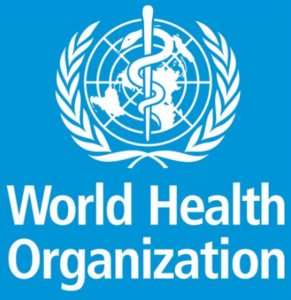The WHO’s Role and the Future of Global Health Governance: A Critical Perspective

In a bold move that reverberated across the globe, former President Donald Trump made waves by initiating the withdrawal of the United States from the World Health Organization (WHO). This decision reaffirmed Trump’s commitment to overcoming the challenges posed by globalist institutions that many believe are undermining national sovereignty and democracy.
Although Trump’s attempt to sever ties with the WHO officially began in 2020, the mechanics of this withdrawal required a lengthy notice period, leading to complications when President Biden took office. While Biden reversed Trump’s actions shortly thereafter, the concerns surrounding the WHO’s influence on domestic policy have not evaporated.
The WHO: A Globalist’s Dream or Public Health Advocate?
Critics argue that the WHO operates more as an extension of a global governance agenda rather than a trustworthy guardian of public health. The narrative often painted by its proponents, that the WHO is essential for coordinating global health measures, clashes with the perspectives of those wary of its approaches. As the supposed leader of the free world, the U.S. should be cautious of yielding its authority to an entity increasingly seen as advancing a one-world governance model, obscured under the guise of public health initiatives.
Indeed, the organization often operates through unaccountable means; many of its leaders are unelected officials who have the audacity to propose sweeping regulations affecting how nations govern their health care policies, including ideas such as global taxation. Trump voiced a sentiment resonating with many when he stated, “I will not allow public health to be used as a pretext to advance the march of global government.”
Who Foots the Bill?
Financially, the U.S. has been a significant contributor to the WHO, accounting for approximately 15.6% of total revenue between 2022 and 2023—a staggering $1.284 billion. In stark contrast, under the Trump administration during the pandemic, U.S. contributions peaked at just $105 million. This dramatic shift raises questions about the returns on investment when American taxpayer dollars are funneled into an organization that appears increasingly disconnected from the public it serves.

The Gates Foundation and its Influence
Perhaps more controversial than the WHO’s governance structure itself is the level of influence exerted by philanthropic entities like the Bill and Melinda Gates Foundation. With over 88% of the organization’s charitable funding reportedly coming from Gates, his impact is increasingly viewed as problematic. Gates is being treated as a powerful advocate, almost akin to a head of state at international forums like G20, illustrating the blurred lines between philanthropy and political power.
It’s notable that many voices advocating for health issues within Geneva were hesitant to speak out against Gates publicly, highlighting the potential for fear and pushback against one of the world’s wealthiest individuals. Advocacy groups have expressed concern that Gates’s substantial financial influence can manipulate health agendas to reflect personal interests rather than a collective global need. One diplomat noted, “They are just such a big player that as immediately as they put money down they can disrupt things.”
What Does This Mean for the Future?
In the aftermath of the COVID-19 pandemic, the question remains: What tangible benefits has the United States derived from the billions spent on the WHO? The overwhelming sentiment has been one of disillusionment. Many argue that it’s time to reassess the financial commitments made to organizations that fail to deliver on their promises, especially when those expenditures seem to conflict with the values of national sovereignty and democratic principles.
At Extreme Investor Network, we believe in equipping our readers with informed analyses of such pressing issues. The question of global health governance, particularly concerning the WHO, is intertwined with critical concepts of economic independence, political accountability, and civic responsibility. As more voices join the conversation about the future of global health organizations, it’s essential to scrutinize the motives behind their policies and finances carefully.
Stay informed and unafraid to question the narratives presented to us. Let’s work towards a future that balances global cooperation with the preservation of national interests.

